Post
A catch
Save a catch to start your fishing logbook. You will be able to to share it with the community if yo want!
A fishing trip
Post an ad to go fishing with other fishermen
Save a catch to start your fishing logbook. You will be able to to share it with the community if yo want!
Post an ad to go fishing with other fishermen
Share a thought, a question with the community
My favorite cities
×Join our 856 fishermen and our 1 cofisherman in Shevington-Moor in Greater Manchester. The fishing forecast is currently 4.7. The most caught fishes here are bitterling fish, the stone loach, the crucian carp and the salmon fish. Come try the most famous fishing techniques like the dive fishing, tips on material for support fishing for sea bream, jig fishing or cast fishing for mackerel or toc fishing.
Our fishing forecast of Shevington Moor indicates the best time to go fishing in this city.
Bitterling Fish
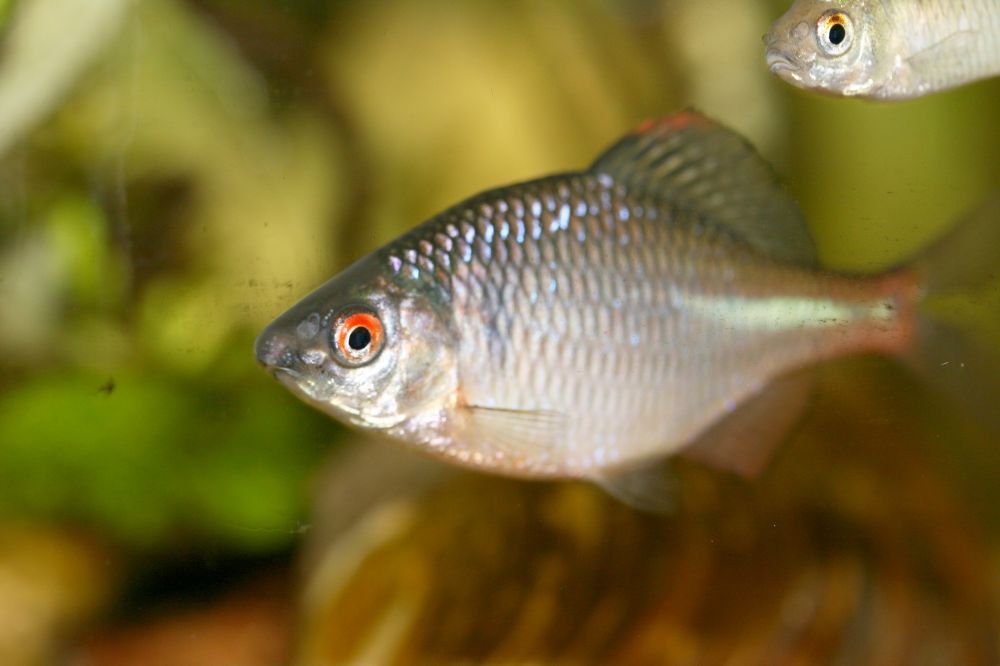
The Bitterling fish is a freshwater fish and belongs to the Cyprinidae family. Its scientific name is Rhodeus Amarus. The current size of the bitterling fish is 5-6 cm. Some individuals can reach a maximum height of 11 cm and a weight of 10 g. This species is one of the smallest Cyprinid in Europe. It lives on average from 2 to 3 years. The spawning period is between April and June. It lays 40 to 100 oocytes. This fish is easy to catch due to its small size. The bitterling is a small fish whose body is high and laterally compressed. The lateral line is short or incomplete. The scales on the back have a grey-green coloring. The sides are clear with silvery reflections. During the breeding period the silver coloration changes to a pink to bright red color with a dark blue sideband. Sexual dimorphism occurs between the male and female during reproduction. A 5 to 8 mm laying tube (ovipositor) develops in the female, which allows her to lay her eggs in the gill cavity of freshwater mussels. The male has a higher body than the female and its colors become brighter during the breeding season. The bitterling fish's eyes are quite large. Its mouth is small, oblique and the upper jaw protrudes beyond the lower jaw. The anal and dorsal fins have a short base and 8 to 10 branched rays.
Bitterling Fish is a famous fish you can catch in Shevington Moor.The Stone Loach
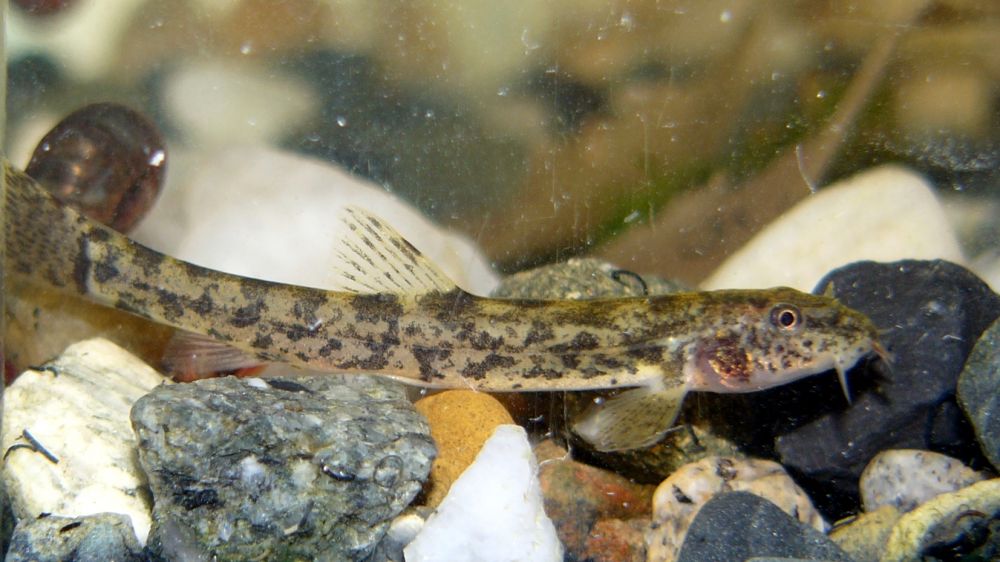
The Stone Loach belongs to the Balitoridae family. The current size of the Stone loach is about 10-12 cm and maximum 20 cm. Its longevity is 5 to 6 years. The breeding period takes place between April and July. Fertility is 50,000 to 80,000 eggs. Fishing is allowed from June to March. The stone loach has an elongated body, subcylindrical in its front part and covered with tiny scales. The head is broad and flattened. The mouth is equipped with three pairs of barbells on the upper lip. She does not have an erectile spine under her eye. The caudal fin is slightly indented, almost straight and punctuated with black. The back is brownish in color, the flanks are yellowish and the belly is clear. A dark band is present at the base of the caudal fin.
The Stone Loach is a famous fish you can catch in Shevington Moor.The Crucian Carp
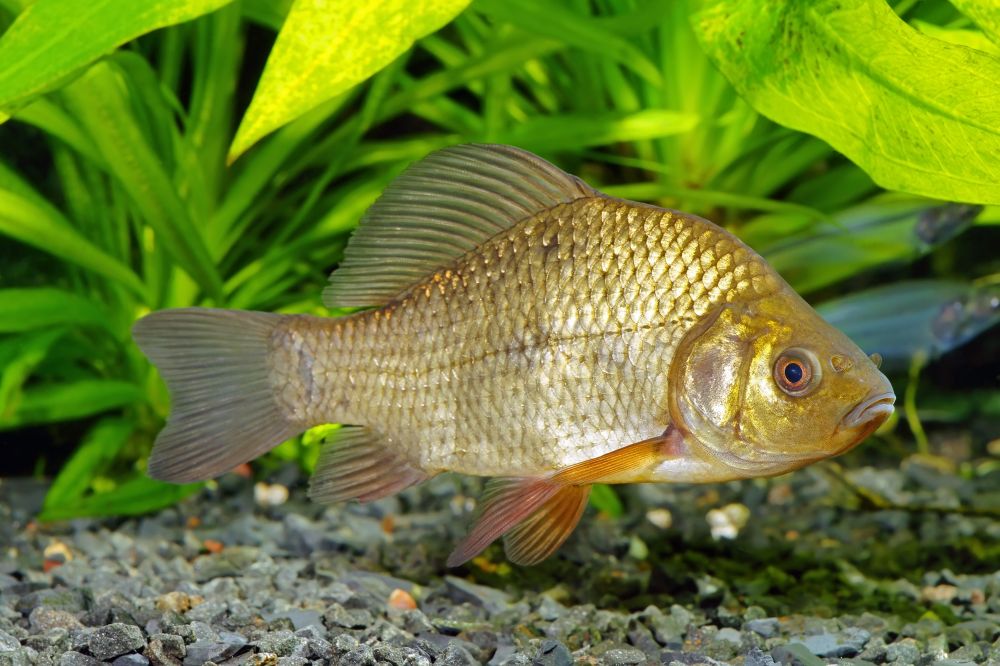
The Crucian Carp belongs to the Cyprinidae family. Its average size is 45 cm for 3 kg. It can live up to 15 years. It breeds from Mai to June. The female lays up to 300,000 oocytes. It can be fished from spring to fall. The Crucian carp is ovoid, stocky and laterally compressed. The protruding back gives it a high body. The most common specimens have an average size of 15 cm and a weight of about 250 g, but they can reach more than 50 cm and a weight of 4 kg. The head, small and conical, has no barbels. The pectoral and ventral fins and the anus are slightly rounded and have a reddish colour. The dorsal fin is characterized by a convex line. Finally, the caudal is slightly indented, and has 20 soft rays. Large scales cover the body and 31 to 36 scales run along the lateral line. Overall, it is greenish in color, dark on the back, with golden reflections on the sides and lighter on the belly. A black spot at the base of the caudal fin characterizes juveniles of this species. This stain disappears with age.
The Crucian Carp is a famous fish you can catch in Shevington Moor.The Salmon fish
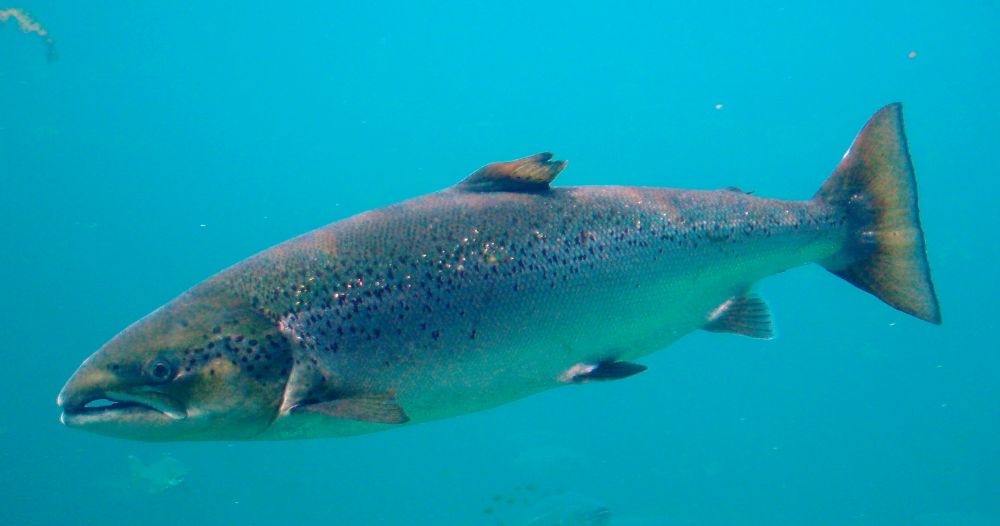
The Salmon fish belongs to the Salmonidae family. It can reach a maximum weight of 47 kg for a height of 1.5 m. The current size of the salmon is 50 to 70 cm, with a weight of 2.3 to 9.1 kg. It can reach a maximum weight of 47 kg for a height of 1.5 m. The current size of the salmon is 50 to 70 cm, with a weight of 2.3 to 9.1 kg. Spawning season is in October-November. Fertility is 1,500 and 1,800 eggs per kg of weight. It is fished in March in October. Salmon have a hydrodynamic and powerful body. The caudal peduncle is elongated and narrower than in trout, with which salmon share many characteristics. The mouth does not extend beyond the plumbing of the posterior edge of the eye. Adults have sexual dimorphism in the muzzle. Females have a rounded snout, while males have an elongated snout and their jaws bend sharply as they age, giving them the name of becard. The caudal fin is fairly indented, with a concave posterior edge and well defined tips. The adipose fin characteristic of Salmonids is present in salmon. The livery is different depending on the reproductive stage of the individual. The parr have 8 to 11 dark-colored vertical bars on the sides. The smolt and the adult have a silvery livery with black cross-shaped punctuation above the lateral line. At the time of reproduction, the male is adorned with bright colors.
The Salmon fish is a famous fish you can catch in Shevington Moor.The Spined Loach
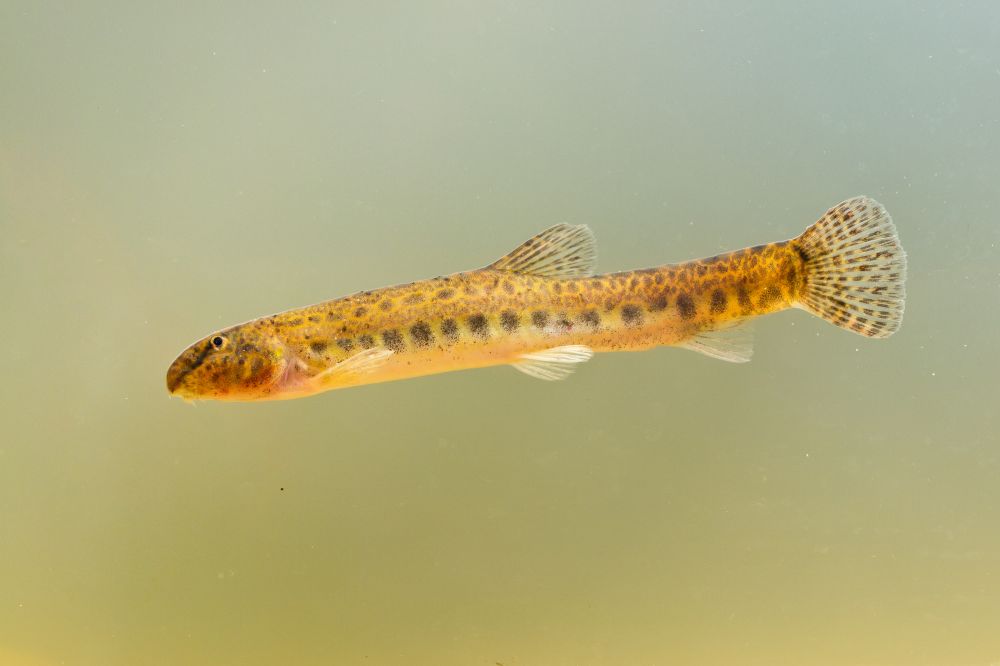
The Spined loach belongs to the Cobitidae family. The Spined Loach has a size of 6 to 12 cm. it can live up to 10 years. The breeding period runs from April to July. The female can lay up to 1500 eggs. It can be fished all year round. Its elongated, ribbon-shaped body is covered with very small scales. Variable in color, light brown to dark brown, its flanks are marked with dark spots aligned longitudinally (the points in the lower row are larger). His belly is very clear and almost white. The head is narrow. The inferior mouth (in the ventral position) is surrounded by six small barbells (4 on the upper jaw and 2 at the corner of the lips). Under each eye, there is a small moving spine that is very inconspicuous (it can be detected mainly by touch). The caudal fin has a black spot growing at its birth and is then marked with four lines of dark dots. The pectoral fins are long. If you have good eyes, you can tell the male from the female by the longer and thicker pectoral fins.
The Spined Loach is a famous fish you can catch in Shevington Moor.Our fishing forecast of Shevington Moor indicates the best time to go fishing in this city.
Our fishing forecast of Shevington Moor indicates the best time to go fishing in this city.
Our fishing forecast of Shevington Moor indicates the best time to go fishing in this city.
